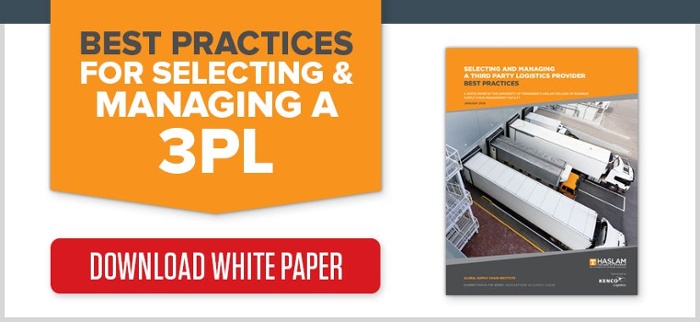
As the contracts of holiday hires expire, you may be wondering the best way to proceed. While the need that drew these hardworking men and women in initially might have been temporary, the ongoing need for qualified workers is anything but.
Simply put, if you have an employee that's proficient at their position, they are an employee worth transitioning into a full-time position. We have outlined our best practices for retaining employees below:
The Case for Staying
In the rush of day-to-day operations, there isn't always sufficient time to consider the holistic costs of expanding your team. Each new member requires effort to interview, effort to train, effort to manage, and effort to course-correct — all time that could have been spent on the floor or in the racks. Familiarity is worth more than it might seem at a glance.
Holiday employees are already familiar with your policies and procedures, which means fewer corrections or disciplinary actions will be needed. They've also been tested, vetted, interviewed, and presumably passed their background checks, which means your hiring team can focus on more important matters. They already have a uniform or work-appropriate wear, and they're familiar with their team and role, so there's no "adjustment period" for showing up to work ready to start. They're already in your employment systems, which means human resources won't need to wade through another pile of paperwork.
Each of these steps represents a cost to your company — a significant one if you factor in opportunity costs — and all are costs that are reduced or eliminated by transitioning temporary hires to full-time positions.
How to Make it Happen
The other side of the coin is your holiday hires' willingness to stay on. Employees in contract or temporary positions have a wide range of reasons for signing up, and a healthy handful have to do with the temporary nature of the job. If you'd like to convince these individuals to remain after the immediate need or contract has passed, you'll need to come with more than a simple job offer in hand. Just as you should — and hopefully do — craft your recruitment processes to appeal to high-quality candidates, you should make a full-time position an enticing one for the candidates already on your payroll.
Recognize excellence.
There is often a default culture of "us vs. them" when it comes to your full-time staff interacting with contractors; make sure temp or holiday hires are openly acknowledged as valuable to the team. This will help close the gap and make the transition into a permanent position seamless and comfortable.
Be clear about compensation and benefits.
Will there be a raise involved with the transition or periodic evaluations for one? What kind of benefits come with the position, and when do they start? These are important points your potential transition hire will need to know to properly consider the move. Moreover, they might need this information to weigh pros and cons with a spouse or partner prior to signing on.
At Kenco, the time temporary employees spend under contract is included in their waiting time toward gaining benefits. This acts as an incentive for temporary employees to stay if a full-time offer is presented.
Consider flexibility in scheduling.
When holiday hires cite the temporary nature of their position as a plus, they're usually concerned about scheduling. It might be family needs that require freedom during unusual hours, or simply a preference for the day or night shift that drives this desire. No matter what the reason, being open to flexible scheduling, telecommuting where applicable, and steady shifts when appropriate will help you with employee retention.
Give them opportunities to improve.
This doesn't necessarily mean advancement in the "job title" sense, though that helps too. Rather, your employees should be given an opportunity to learn and earn certifications through career advancement programs. Depending on your industry, this may be something as simple as a forklift operator's license, or as complex as certification on a specific type of niche machinery. In short, you'll want your employees to know you aren't just "renting" them; you're interested in helping them grow, as well.
Start fostering the concept early on.
Again, many employees take on holiday or contract work specifically because they know it will end at a certain point. With that in mind, they may be lining up a new job to jump to after that contract ends – ideally, you'll want to cut off that effort by enticing them with one of your own. The closer you get to the "deadline" of a contract's end, the higher the chance those contingency plans are already made.
Be candid about your intention to hire some or all of your holiday employees – it will make your eventual offer less of a surprise element to their plans.
Final Thoughts
Holiday hiring is transforming into more of a dry run and less of a stopgap measure for the logistics industry; with careful prep and timing, you can tap into this trend as well.
Even in a busy, high-turnover industry, sometimes, as the saying goes, you can find what you're looking for right in front of you–or, more accurately, already on your payroll.
We know how important efficiency is to your company. Working with a third party logistics partner can help you increase efficiency and reduce costs, but choosing the right partner is essential. Find out what you should be looking for in a 3PL provider by downloading the white paper, Selecting and Managing a Third Party Logistics Provider.
This offer includes everything you would need to select a provider, from a checklist for evaluating different 3PL providers to best practices for developing a contract with a 3PL.


